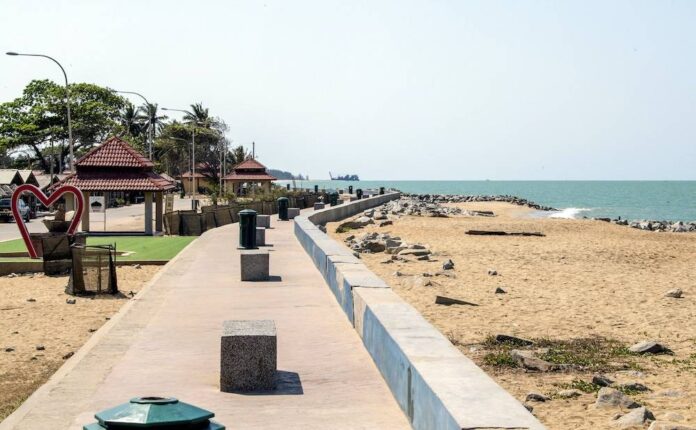A general view of Pantai Cahaya Bulan in Kelantan. Yong Chien Zheng, a lecturer of surveying at the University of Otago in New Zealand, said the state might go the way of Jakarta in Indonesia unless the authorities take care with extracting underground water. — Bernama pic
Follow us on Instagram, subscribe to our Telegram channel and browser alerts for the latest news you need to know.
KUALA LUMPUR, Nov 12 — The Mineral and Geoscience Department has rebutted a university researcher’s assertion that Kelantan is sinking, and warning that the northeast peninsular state could go the way of Indonesian capital Jakarta if authorities do not act to control groundwater extraction.
The department said its records do not show any land subsidence in Kelantan over the past 15 years due to uncontrolled boring groundwater, The Star reported today.
“Based on the department’s monitoring from 2007 until 2022, there was no land subsidence recorded in Kelantan that can be associated with the use of groundwater,” the department said.
Groundwater levels, which were recorded from 1989 to 2018, did not display any significant data of sudden drops, it added.
“Hydrogeological modelling that has been carried out by JMG found that the safe yield for an underground water well field in Kelantan is at a rate of 406 million litres per day.
“The current groundwater pumping is at a rate of 198.2 million litres per day (48.2 per cent), which is below the safe yield rate,” it was quoted as saying.
Besides that, it said that Kuala Krai has no recorded instances of underground water pumping for commercial or massive use which could result in ground subsidence.
The statement was issued in response to a report carried by The Star yesterday, in which Yong Chien Zheng, a lecturer of surveying at the University of Otago in New Zealand, said Kelantan might go the way of Jakarta in Indonesia unless the authorities take care with extracting underground water.
He told the newspaper that there is a high correlation between subsidence, which is when a land or building sinks, and groundwater extraction but could not identify the main cause due to insufficient data.
He added that unless the government takes measures now, land in Kelantan would sink, which could cause more parts of the state to be under water.
He published his findings in 2018 under the title: “Groundwater extraction-induced land subsidence: A geodetic strain rate study in Kelantan, Malaysia”.



